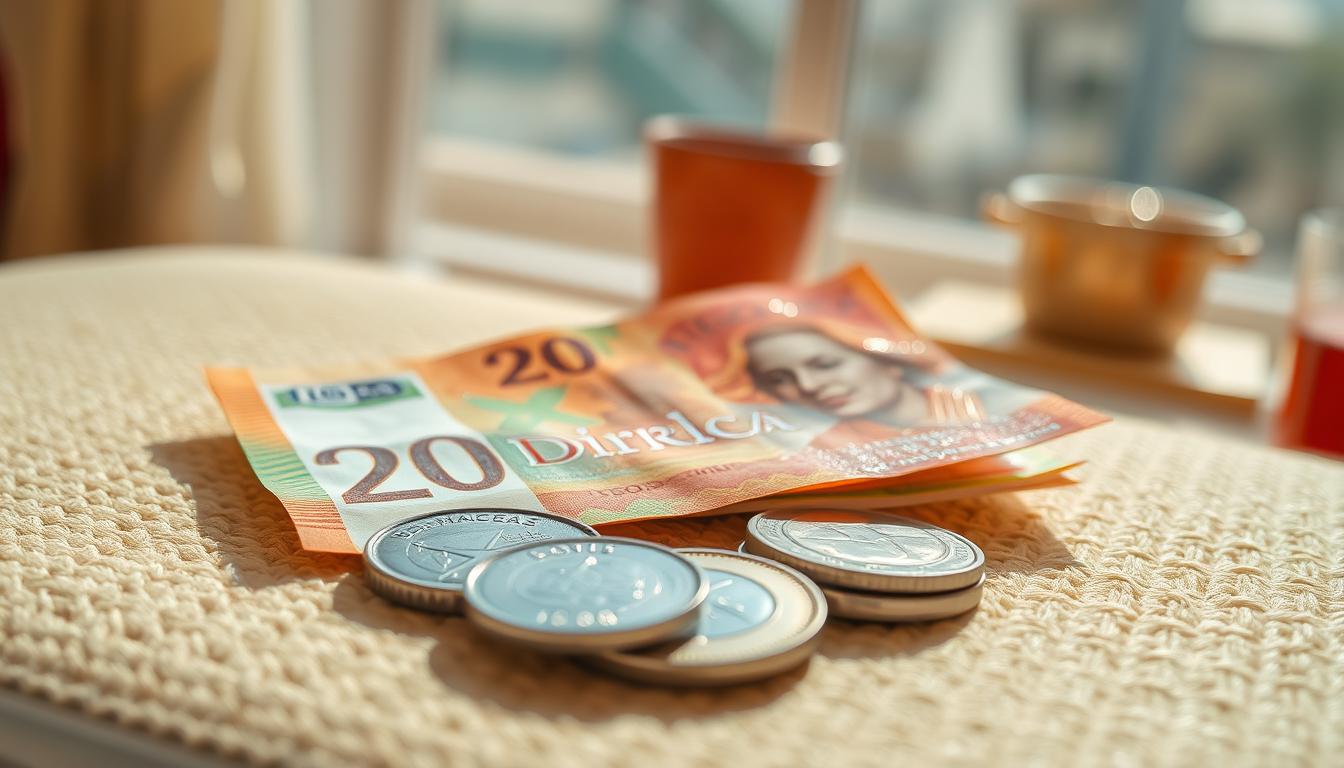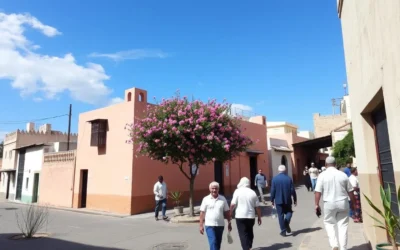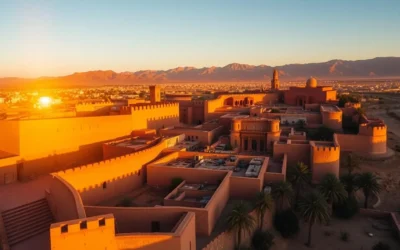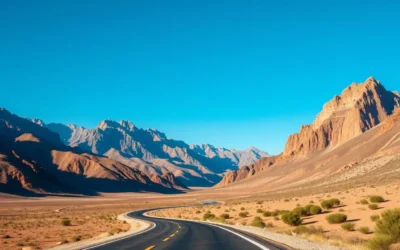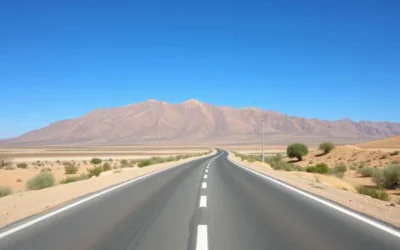✓ Accommodations✓ Flights✓ Rental Cars✓ Tours & Activities
Did you know that cash accounts for 90% of purchases in Morocco? This surprising fact highlights why understanding the local currency system is essential for a smooth and hassle-free experience. The official currency here is the Moroccan Dirham (MAD), and it operates under a closed system, meaning you can’t get it outside the country.
Whether you’re exploring bustling city markets or dining at a cozy restaurant, knowing how to handle money is key. This guide will walk you through everything from using ATMs to avoiding hidden fees. You’ll also learn the best ways to manage both cash and card payments, ensuring you’re prepared for every situation.
With insights from locals and travel experts, you’ll discover how to get the best exchange rate, where to withdraw money, and how to navigate foreign transaction fees. Let’s make your trip stress-free and enjoyable!
Understanding Morocco’s Currency Landscape
Navigating the Moroccan Dirham system can make your trip smoother and more enjoyable. The official currency, the Moroccan Dirham (MAD), is unique in its design and usage. It’s a closed currency, meaning you can’t get it outside the country. This makes it essential to understand how it works before you arrive.
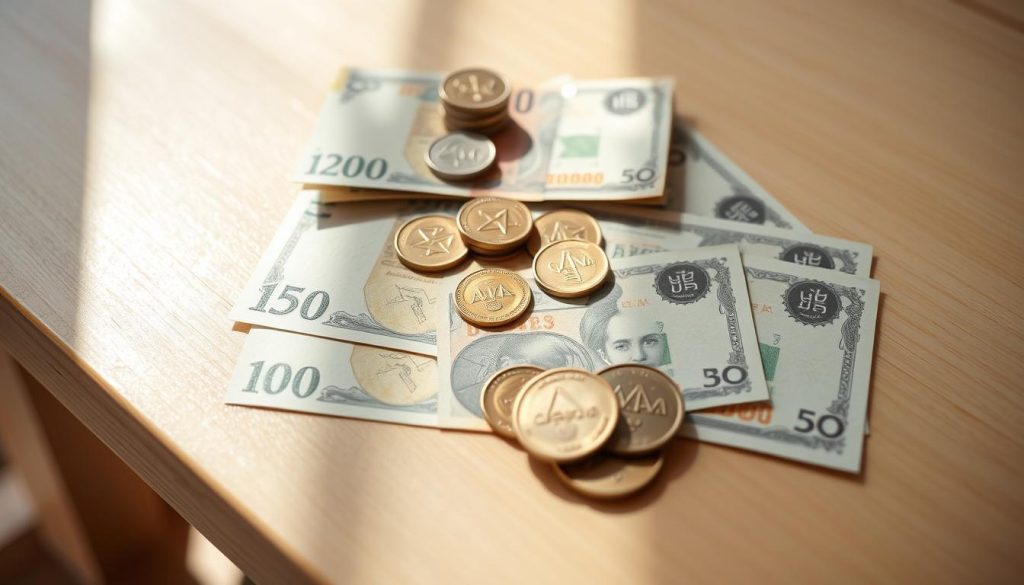
Overview of the Moroccan Dirham (MAD)
The Moroccan Dirham is the backbone of all transactions in the country. It’s symbolized by د.م and is available in both coins and banknotes. Coins come in denominations of ½, 1, 2, 5, and 10 dirhams. Banknotes are issued in 20, 50, 100, and 200 dirhams. Knowing these denominations helps you handle everyday payments with ease.
Currency Denominations and Key Facts
Understanding the currency denominations is crucial for smooth transactions. Here’s a quick breakdown:
| Type | Denominations |
|---|---|
| Coins | ½, 1, 2, 5, 10 dirhams |
| Banknotes | 20, 50, 100, 200 dirhams |
While major cities accept cards, cash is still the primary medium in rural areas and traditional markets. ATMs are widely available, but they typically dispense 100 and 200 dirham notes. Foreign transaction fees for ATM withdrawals can range from 1% to 3%, so it’s wise to withdraw larger amounts at once.
Small change can be scarce, so vendors often rely on neighbors to break large bills. This makes it important to carry smaller denominations for everyday purchases. Additionally, it’s illegal to export more than 2,000 MAD when leaving the country, so plan your exchanges accordingly.
By understanding the Moroccan Dirham and its denominations, you’ll be better prepared for a hassle-free trip. This knowledge not only helps you avoid surprises but also ensures you get the most out of your travel budget.
Navigating Payment Options in Morocco
When planning your trip, understanding payment options can save you time and money. From cash to cards, each method has its pros and cons. Knowing which to use and when can make your journey smoother.
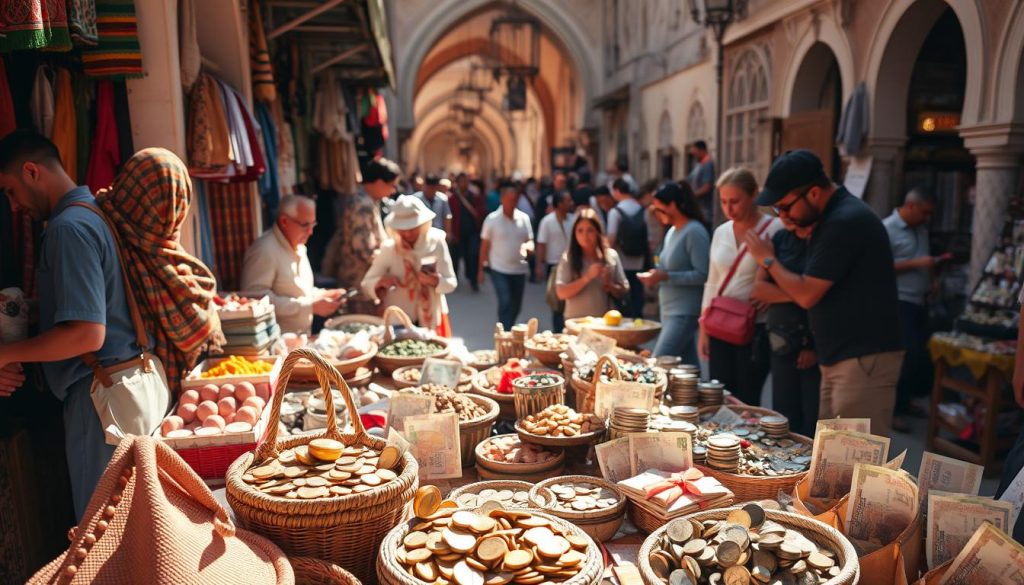
Using Cash in Traditional Markets
Carrying cash in the local currency, the Moroccan Dirham (MAD), is essential. In traditional markets and rural areas, cash is often the only accepted form of payment. Smaller denominations are particularly useful for everyday purchases and tips.
ATMs are widely available in cities, but they typically dispense 100 or 200 MAD notes. To avoid running out of small change, keep some coins and lower-value bills handy.
Card Payments in Major Cities
In larger cities, cards are widely accepted at hotels, restaurants, and shops. Visa and Mastercard are the most commonly used. However, using cards for small amounts may incur fees, so it’s best to reserve them for larger transactions.
Before your trip, check your bank’s foreign transaction fees. Some cards offer competitive exchange rates, saving you money in the long run.
Travel Debit Cards for Convenience
Travel debit cards, like those from Wise, are a great option. They offer competitive exchange rates and low fees. Withdrawals up to 200 GBP per month are often free, making them ideal for budget-conscious travelers.
These cards are widely accepted at ATMs and provide added security. Always use secure locations for withdrawals to protect your money.
By combining cash, cards, and travel debit options, you’ll be prepared for any situation. This mix ensures convenience and safety throughout your trip.
Morocco: Ultimate Travelers Guide to Currencies & Payments
Avoiding extra fees starts with mastering the art of currency exchange. Whether you’re planning your trip or already in the country, knowing how to handle money smartly can save you time and cash. Here’s how to make the most of your exchange experience.
Finding the Best Exchange Rates
Start by comparing rates before you travel. Banks and online services often offer competitive exchange rates. Once you arrive, avoid exchanging money at airports or hotels, as they typically charge higher fees. Instead, visit local exchange bureaus in the city center for better deals.
Always check the current exchange rate to ensure you’re getting a fair deal. Keep receipts from your transactions to reconcile your expenses later. This simple step can help you track your spending and avoid surprises.
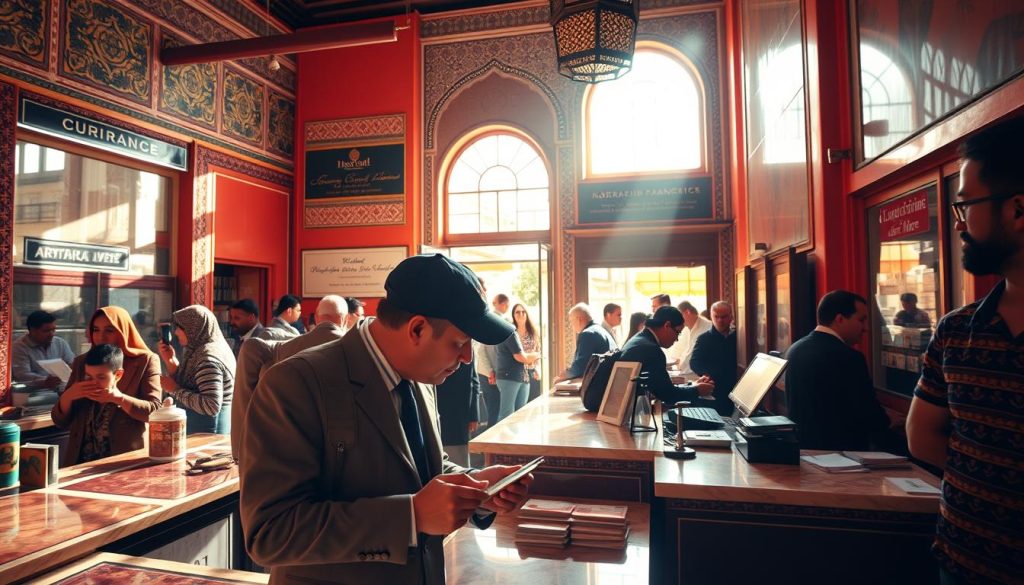
Managing Foreign Transaction Fees
Using your card abroad can be convenient, but it often comes with foreign transaction fees. To minimize these, choose a debit card or credit card with low or no international fees. Always insist on paying in the local currency (MAD) to avoid dynamic currency conversion, which can add extra costs.
When withdrawing cash from ATMs, opt for bank-affiliated machines. They usually offer better rates and lower fees. Withdraw larger amounts at once to reduce the number of transactions and save on fees.
Practical Tips for Exchanging Money
Carry smaller denominations of cash for everyday purchases and tips. This is especially useful in markets and restaurants, where breaking large bills can be challenging. If you’re unsure about the exchange process, ask locals or your hotel for recommendations on trusted exchange bureaus.
By following these tips, you’ll ensure a smooth and cost-effective exchange experience. This sets the foundation for maximizing your travel budget and enjoying your trip without financial stress.
Maximizing Your Travel Budget in Morocco
Making the most of your travel budget starts with smart planning and strategic spending. Whether you’re exploring bustling city markets or dining at local restaurants, knowing how to manage your money can make a big difference. Here’s how to stretch your budget and enjoy your trip without overspending.
Tips to Secure the Best Exchange Rates
Start by comparing exchange rates before you leave. Banks and online services often offer competitive deals. Once you arrive, avoid exchanging currency at airports or hotels, as they typically charge higher fees. Instead, visit local exchange bureaus in the city center for better rates.
Using a travel debit card from providers like Wise can also save you money. These cards offer low-cost conversions and are widely accepted at ATMs. Always check the current exchange rate to ensure you’re getting a fair deal.
Strategies for Smart Spending
In local markets and restaurants, cash is often the preferred payment method. Carry smaller denominations to make everyday transactions easier. This is especially useful for tips and small purchases.
When dining out, look for budget-friendly options. Many local eateries offer delicious meals at affordable prices. Combining cash and card payments ensures you’re prepared for any situation.
Using ATMs and Local Banks Effectively
ATMs are widely available in major cities, but choosing the right one matters. Opt for bank-affiliated machines to avoid high fees. Withdraw larger amounts at once to reduce the number of transactions.
Local banks often offer better exchange rates and lower fees. Keep receipts from your exchanges to track your spending. By planning ahead, you can avoid unnecessary costs and make the most of your travel budget.
Practical Tips for Safe and Efficient Transactions
Ensuring safe and efficient transactions is key to a stress-free experience. Whether you’re exchanging currency or using your card, staying informed can protect your funds and enhance your travel.
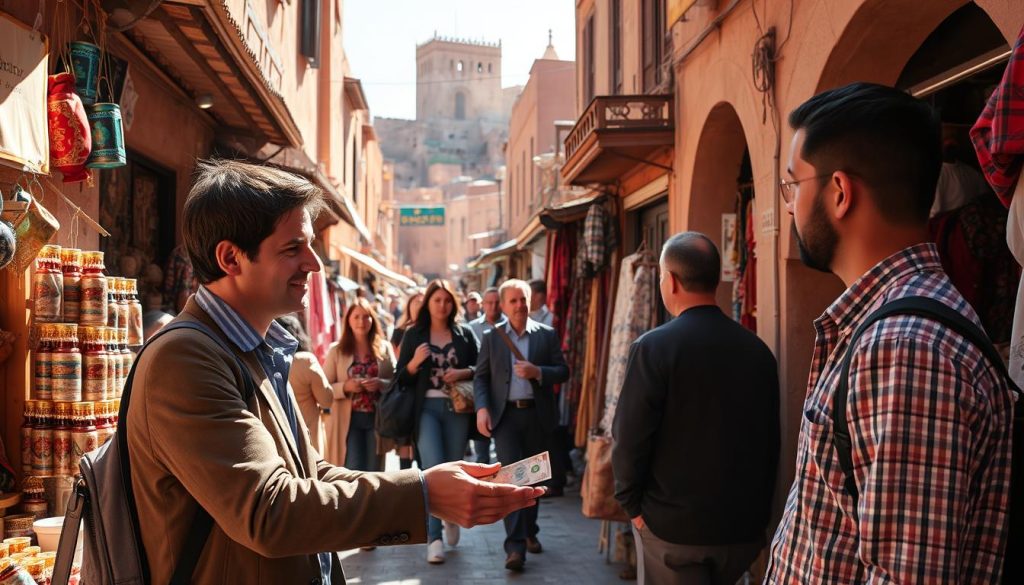
Avoiding Common Pitfalls in Money Exchange
When exchanging currency, always confirm the rate and verify the correct amount before completing the transaction. Hidden fees and dynamic currency conversion can add unnecessary costs. Stick to established banks or authorized exchange offices for better rates.
Use well-lit, bank-affiliated ATMs to avoid risks like skimming devices. Avoid isolated exchange points, especially in busy tourist areas. Keep your cash and cards secure by using a money belt or hidden pouch.
| Tip | Why It Matters |
|---|---|
| Confirm the exchange rate | Ensures you get a fair deal |
| Use bank-affiliated ATMs | Reduces risk of fraud |
| Check for hidden fees | Saves money in the long run |
Read receipts carefully and monitor your transactions in real time using travel apps. This helps you spot discrepancies early and keeps your money safe.
By following these tips, you’ll ensure smooth and secure payments throughout your trip. Staying alert and informed is the best way to avoid common pitfalls and enjoy your journey.
Conclusion
Balancing cash and card usage is key to smooth transactions. Understanding the local currency system ensures you’re prepared for any situation. Whether in bustling city centers or rural areas, having both payment methods handy is essential.
Securing the best exchange rate and using trusted banks or ATMs can save you money. Avoid hidden fees by paying in the local currency and planning your transactions ahead of time.
By following these tips, you’ll maximize your money and enjoy a hassle-free experience. Share this guide with others planning their journey, and get ready to explore with confidence. Safe travels!
The above is subject to change.
Check back often to TRAVEL.COM for the latest travel tips and deals.
